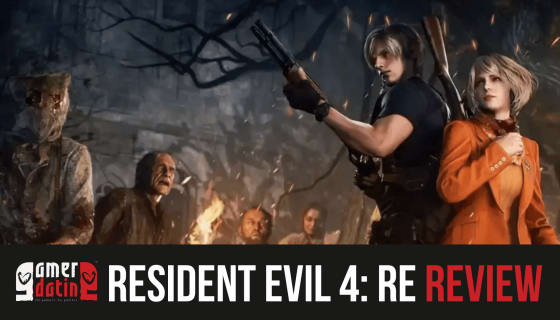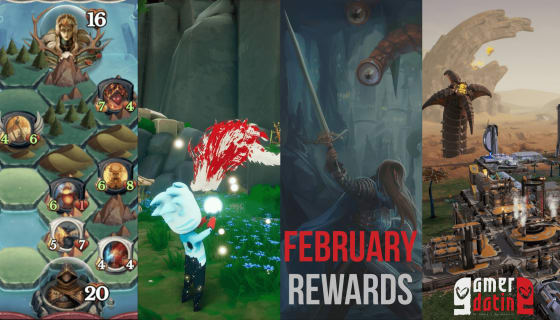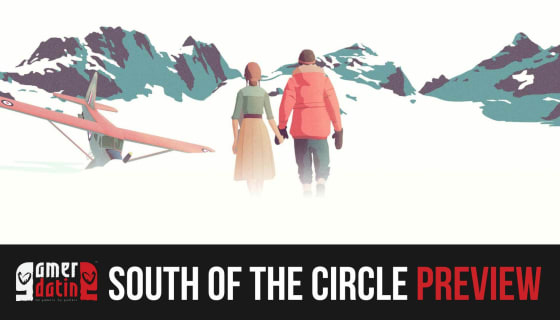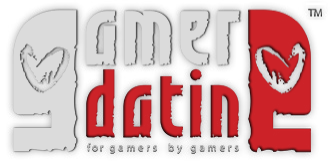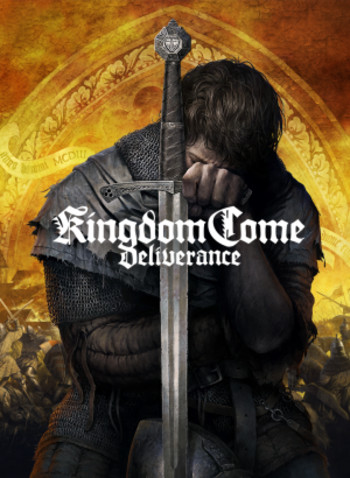Three weeks ago I played Kingdom Come: Deliverance, an open world RPG from the fledging Warhorse Studios with the unique selling point of being true to medieval history in every detail, complete with clothing, armour, weapons and locations of the time. Having a passion for all things medieval, I was eager to jump right in. The game is set in Bohemia in 1403AD, and much of the action is centred around the city of Rattay (modern day Rataje nad Sázavou, in the Czech Republic).
The game begins in the mining community of Skalitz, and you are Henry, the only son of a local blacksmith and swordsmith. The game wastes no time in sending you on your first quests, easing you in with simple errands for your father, such as acquiring him coal for his forge, a flagon of cold ale and recovering a debt from a local villager. The third of these errands will invariably lead you to your first fist fight. At first glance, the unarmed combat can seem a little sluggish, however, there is a very palpable element of skill and patience involved. Playing your cards right, you can overcome opponents who are much more skilled in this regard than yourself. Timing your blocks, strikes and dodges is key, and unlike many other open-world RPGs of the age, fist fighting is not a simple matter of walking up to your opponent and repeatedly pressing the attack button until he (or you) fall over.
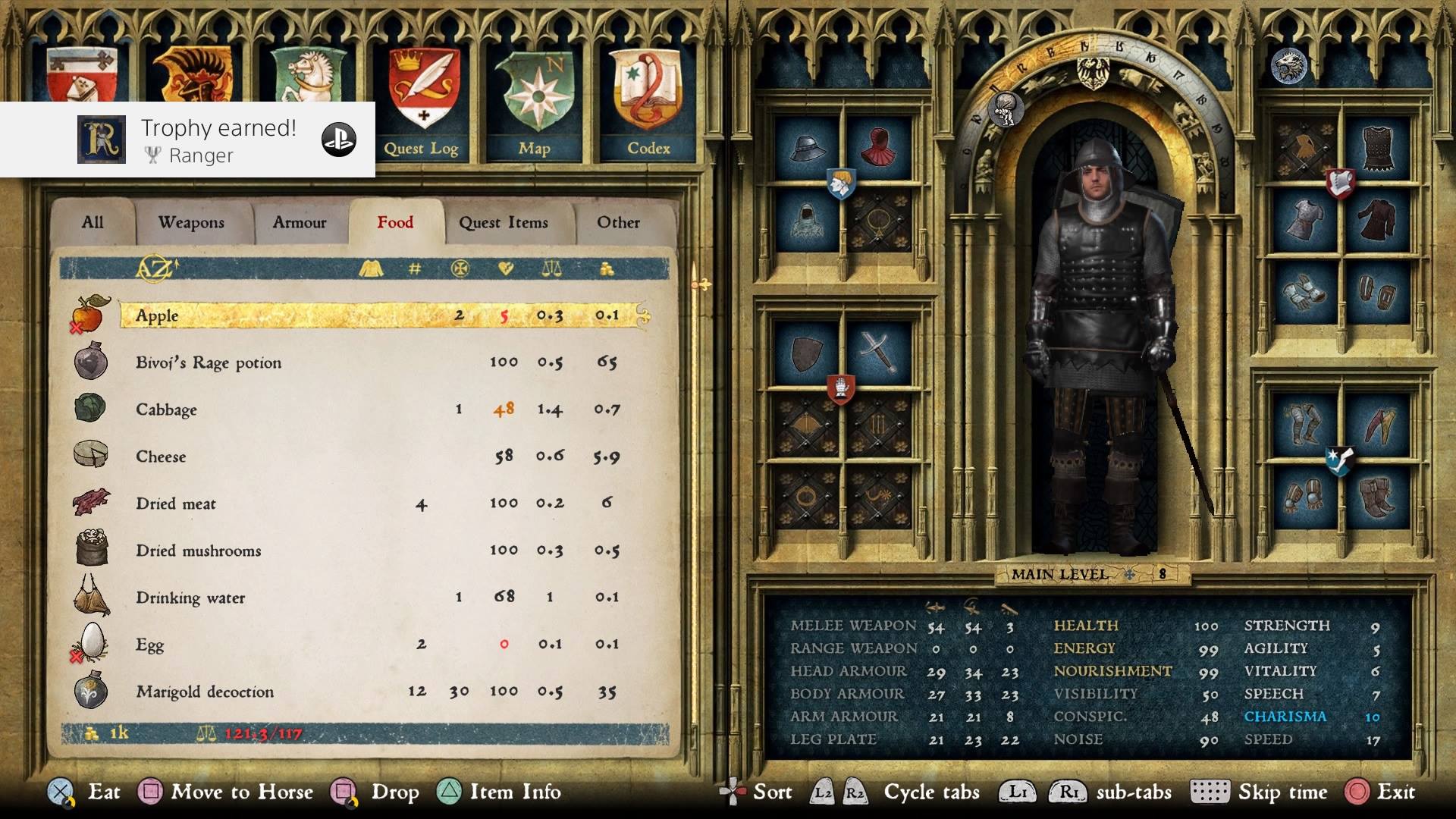
In what may seem at first something of a cliche, the game is kicked off proper when a large army of Cuman soldiers (That’s Cuman not Human, no undead here – ed) appears on the horizon and sacks the town of Skalitz, forcing young Henry to flee for his life. Henry shortly afterwards feels compelled to return to the village to give the slaughtered inhabitants a Christian burial. Whilst this may seem like an oft-used starting point for many young hero's adventure in fantasy and historical fiction alike, the return to Skalitz after the raid is one of the most moving scenes I have experienced in gaming in quite some time. The scenes expertly use music and camera angles in a powerfully moving way so much so that I could not help but been drawn into feeling that what had befallen Henry and his town was now a very personal matter to me indeed. It is at this point the open world of Kingdom Come: Deliverance becomes fully accessible.
You find yourself in Rattay, a sprawling town in the South Eastern corner of the region, along with the handful of refugees that also escaped the destruction of Skalitz. Apart from the benevolence of a few local nobles, who will set you on the path of your main quest, you are now utterly alone in the world. Money is scarce, and as one would expect in an authentic medieval world, not necessarily easily earned by honest means. Whilst this may not seem an overly concerning issue at the start of a game, it soon becomes apparent that Henry needs to eat, he needs a place to sleep and in addition, needs to keep clean if people are to treat him with any level of respect in conversation. Clothes and shoes wear down with constant use and must be repaired to remain in good order. I found my need for money pressing, and, like so many people throughout history I found myself drawn towards a life of crime to feed and clothe Henry.
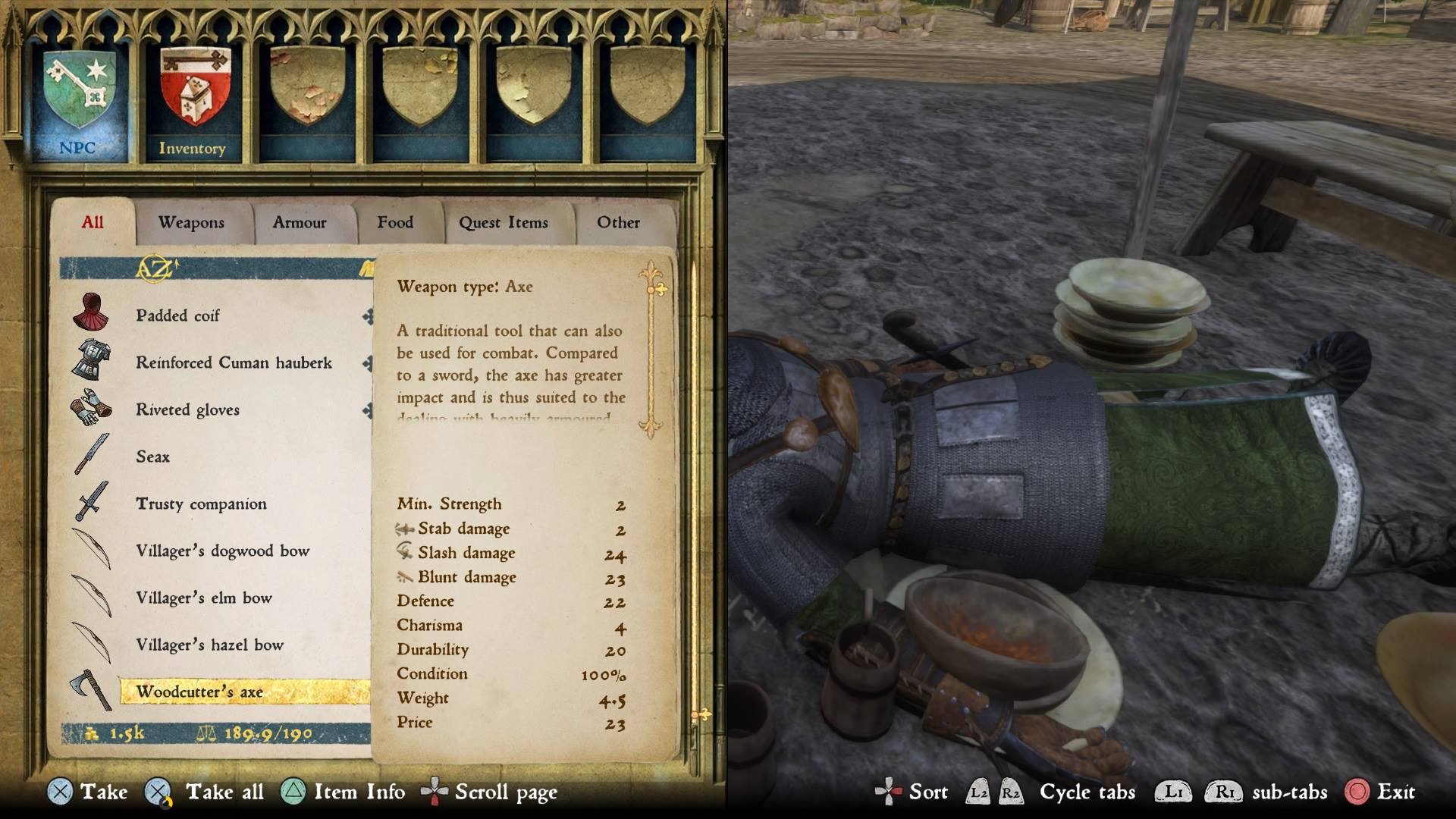
As one might expect, despite the severe judicial system of the Middle Ages, there was no shortage of underhand jobs on offer from the less savoury inhabitants of Rattaye. I had initially intended to play Henry as an upstanding warrior, however, the rewards of crime were almost irresistible and at this point, employing stealth and deception became one of the most satisfying and rewarding aspects of the game for me. The clothing Henry wears affects how much attention will be paid to him by other people, including guards and nobles. Naturally, darker clothes reduce Henry's visibility when lurking in the shadows and the type of shoes he wears along with any armour will affect how much noise he makes when he moves. I quickly secured myself a dark jacket and soft leather boots for the nights of crime ahead.
To my delight, initially almost everything was worth stealing. In the Middle Ages, everything was handmade, and very little was wasted and as such items of food, clothing, books, everything had value to someone. This was a refreshing change from the endless barrels of pointless potatoes in Skyrim and Oblivion. Naturally, the items with the highest value were items such as swords. Even the humblest sword is worth a respectable sum, true to history. There were of course, occasions I was caught. I absolutely love the way people react to you as a criminal. They will either call for the guards or attack you, depending on their personality and social station. The best course of action is, of course, to immediately flee the area. If you return to the scene of the crime later, guards will attempt to recognise you. After a period of time has passed(or you have paid your fines) you can return to an area safely. Beware though, if you are a wanted man, even other locals will refuse to speak to such an outlaw unless you pay them handsomely first. This can make it difficult to proceed with quests if you are a particularly notorious criminal.
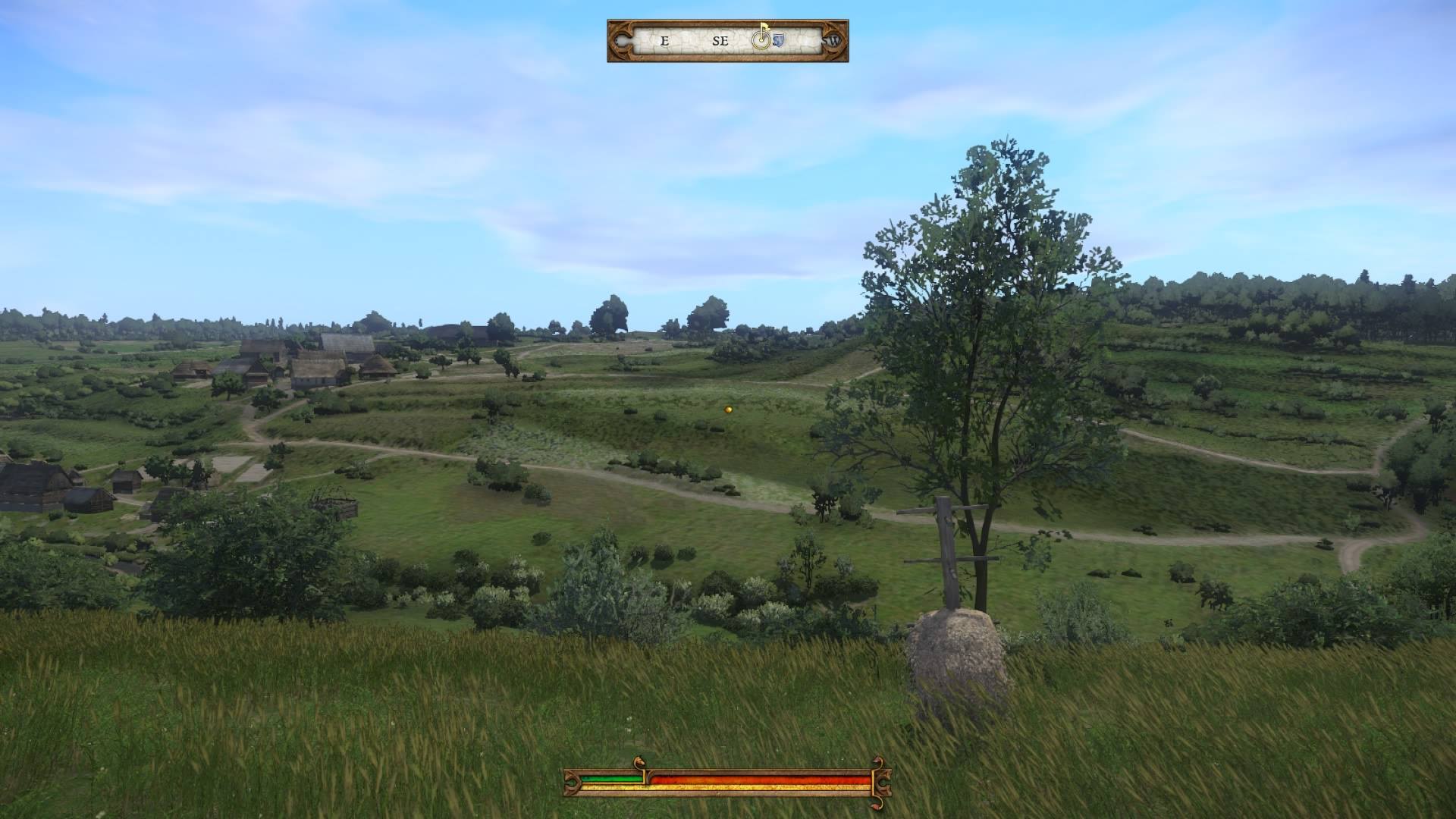
I found myself swindled by the local executioner. Annoyed by the cheek of the man I punched him. To my horror, I realised the man had a sword sheathed at his hip, however, he did not draw it. I soon realised, that the executioner did not want to escalate the situation any more than I did, and as long as I did not draw a weapon myself, the fight would remain a fist fight. I came to realise that this applied to most characters within the game, some attackers even surrendering or running away as soon as you draw a weapon.
I found this element of the AI both refreshing and exciting. It made the people you interact with feel like individuals, with their own personalities and motives. Similarly, in any given engagement you can attempt to surrender yourself if the fight is against you. Depending on the motives and personality of the character you are surrendering to, they may or may not accept your surrender, and even if they do, there may be conditions. Surrendering to a guard will result in being forced to pay a fine or being dragged to jail, surrendering to a bandit may result in him forcing you to hand over all of your money and possessions. Of course, there are those who simply want to see you dead no matter what.
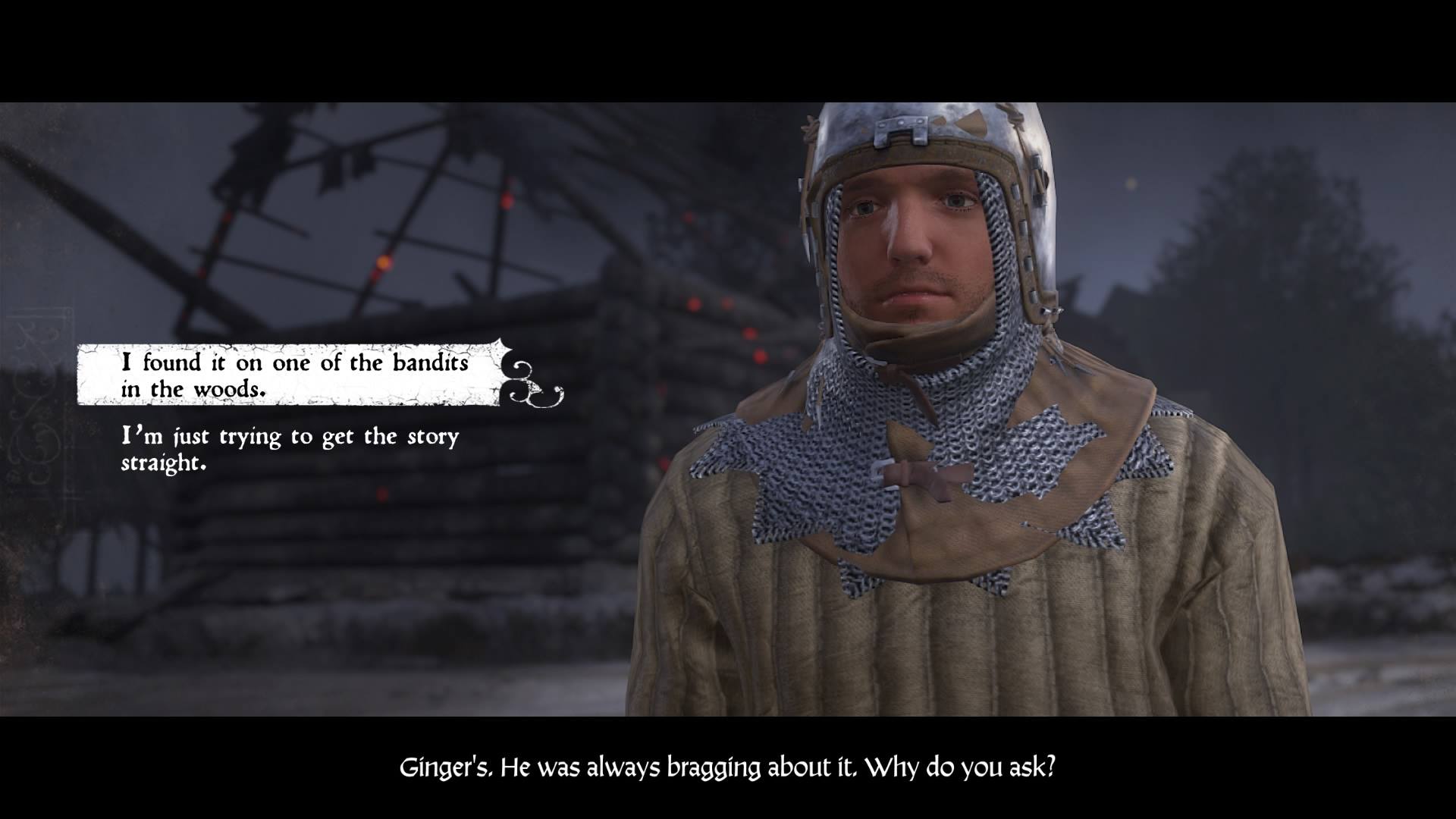
Combat
The combat system, by all appearances, looks beautiful. it involves attacking your opponent from different directions in a manner similar to Ubisoft's For Honor (2017), and combining attacks from different directions to form combos. Unfortunately, combos are incredibly difficult to perform and are often completely unnecessary to win fights. Combos are rendered almost redundant for two main reasons; The armed combat system includes a blocking feature where pressing the block button will block an attack no matter which direction your assailant strikes from. Holding the block button down constantly is ineffective, however, to block effectively, the player must press the block button as the enemy's strike is about to land.
If a perfect block is executed, the character will often perform a riposte, knocking the opponent off balance and causing some damage. Of course, AI characters can also do this and they do, frequently. When a perfect block is performed it interrupts any attempt at a combo you might have been making, and as combos are always made up of at least three attacks, it is almost guaranteed that an opponent will execute a perfect block on your second, if not your first strike. The second reason combos are somewhat redundant is because of the inclusion of a combat mechanic called 'clinching'. If you approach an opponent and hold down the attack button, you will lock weapons with him and attempt to overpower him by repeatedly pressing the attack button. If successful, the opponent is forced back and distracted long enough for you to strike him a deadly blow. beating your opponent in a clinch two to three times is a simple and sure fire way to defeat just about any opponent, no combos required.
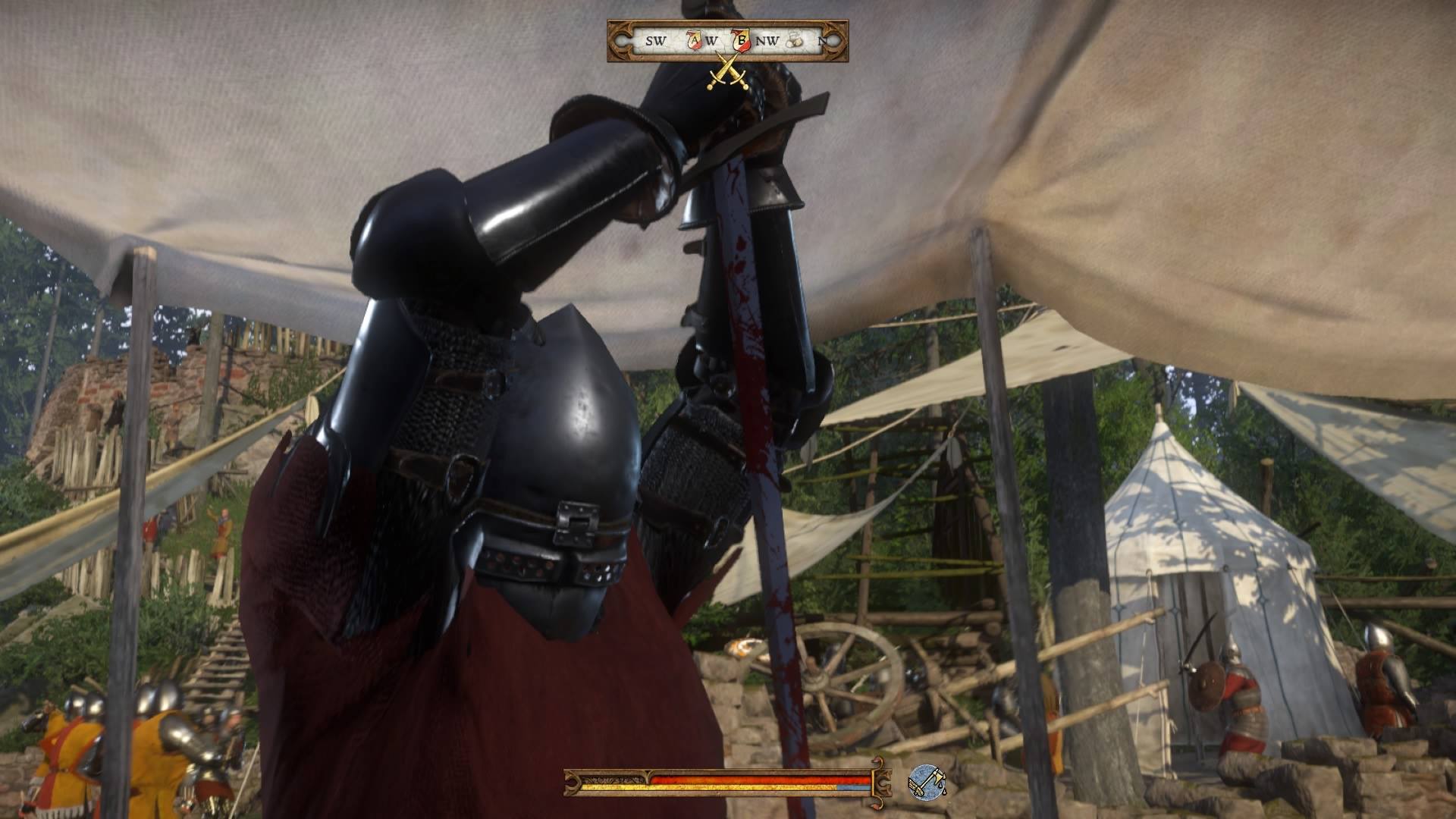
The mechanics for wearing armour are a refreshing change from the various armour class systems employed by RPGs over the years. Whilst there is a numerical value to each location on your body armour is worn, you can be fairly confident that if you are wearing plate armour of any kind, you are not likely to suffer injury from anything less than a heavy axe or warhammer, and the only danger comes from running out of stamina. Running out of stamina in combat is deadly, as at this point you can no longer block an attack and it will always bypass your armour to some extent. If this occurs and you are surrounded you may as well put down the controller. This adds an element of realism to the combat that is again, refreshing when compared to other first person RPGs of our age.
As one would expect from this kind of open world RPG, Kingdom Come: Deliverance is choc-a-bloc with side quests. From stealing horses, to hunting down heretics to poaching game for refugees, there is no shortage of activities to keep Henry and you occupied. Quest givers are clearly marked by a star on the map, so if you find yourself at a loose end, another job is never too far away.
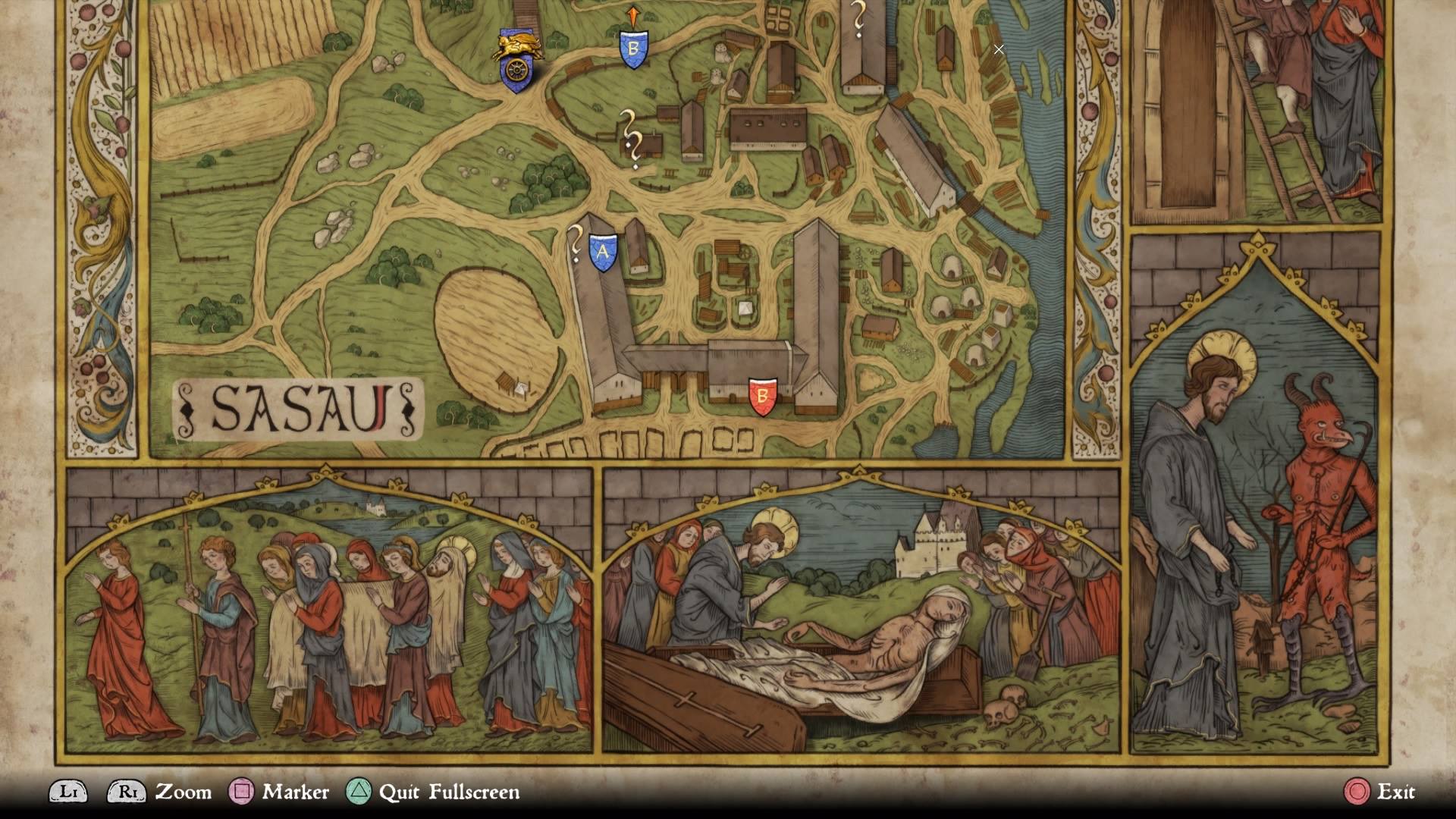
Aesthetically, Kingdom Come: Deliverance is simply beautiful, even on console. The attention to detail in clothing, terrain, cities and even forests is breathtaking. The world map, the menus, the inventory screen and books Henry can find and read (when he learns how!) are awash with glorious 15th century artwork, bright, colourful and quintessentially medieval. The soundtrack ranges from the jovial to the sorrowful, depending on where you are and what you're doing at the time. There are occasions where you can find yourself slowing your horse to a trot to appreciate a glorious sunrise couple with the beautiful in game music playing on a quiet dawn. There is a large enough cast of voice actors to make conversation feel like you are talking to a different person each time, an issue often encountered most notably in Bethesda titles, where the same distinctive voice actors can be heard over and over again for different key NPCs. Interestingly, the accents of the NPCs are incredibly varied. There are English, Australians, Scottish, Germans, Americans and more amongst the voice cast. I can not put my finger on why, but despite this being Bohemia in 1403AD, it somehow works.
Setbacks?
Kingdom Come: Deliverance is not without it's problems, however. Regrettably, they are many, severe and often immersion breaking. The game is plagued by incredibly long loading times, often forcing the player to watch the entire cinematic before even reaching the main menu. This is tolerable in comparison to the in game loading times. Forests and countryside tend to load perfectly as you move through them, however large cities, such as Ratty itself, and the Monastery city of Sasau later in the game are an absolute nightmare, especially if attempting to ride a horse through them. Entire sections of the city can be missing from the screen when you physically reach them, often forcing you to wait a few moments whilst the scenery almost magically pops into existence around you. This can be particularly infuriating when crossing a river, as you cannot see the bridge that you know is there, or when riding through a field and a fence suddenly spawns in front of your horse bringing you to an abrupt halt. i have been playing on console however and it is possible that by playing on PC with the game installed on to a solid state drive will rectify a lot of these problems. What a solid state drive will not rectify however, are the clipping issues. Much of the armour in the game and many items of clothing clip severely with other items of armour or clothing a character is wearing. This applies to both the player character and NPCs.
I bought myself a 'grand bascinet', a type of high tier fully enclosed helmet, and I can tell you it was not cheap. Imagine my frustration when I equipped it to find that every time Henry entered a conversation with an NPC, the padded arming cap he wears beneath the helm could be quite clearly seen poking out through the back of the helmet. this is but one example, you will frequently see, as you walk around the game world sections of clothing missing from NPC's costumes, and other parts clipping into each other. I had hoped six months after realease of the game some of these issues would have been fixed, however as I understand it, many other more serious issues have been the focus of Warhorse Studios since the game's release. So far I have only encountered one bugged side quest, though credit where it is due, there was a simple if unsatisfying workaround to it. There have been a couple of other minor issues such as opponents simply putting their weapons away and attempting to walk off during a fight, but these were only mildly inconvenient. Most bugs and glitches are purely cosmetic. The only other main irritation I have with the game as a whole is Henry's tendency to get 'stuck' on very minor terrain features, such as small rocks, a log in the path or a fence post.
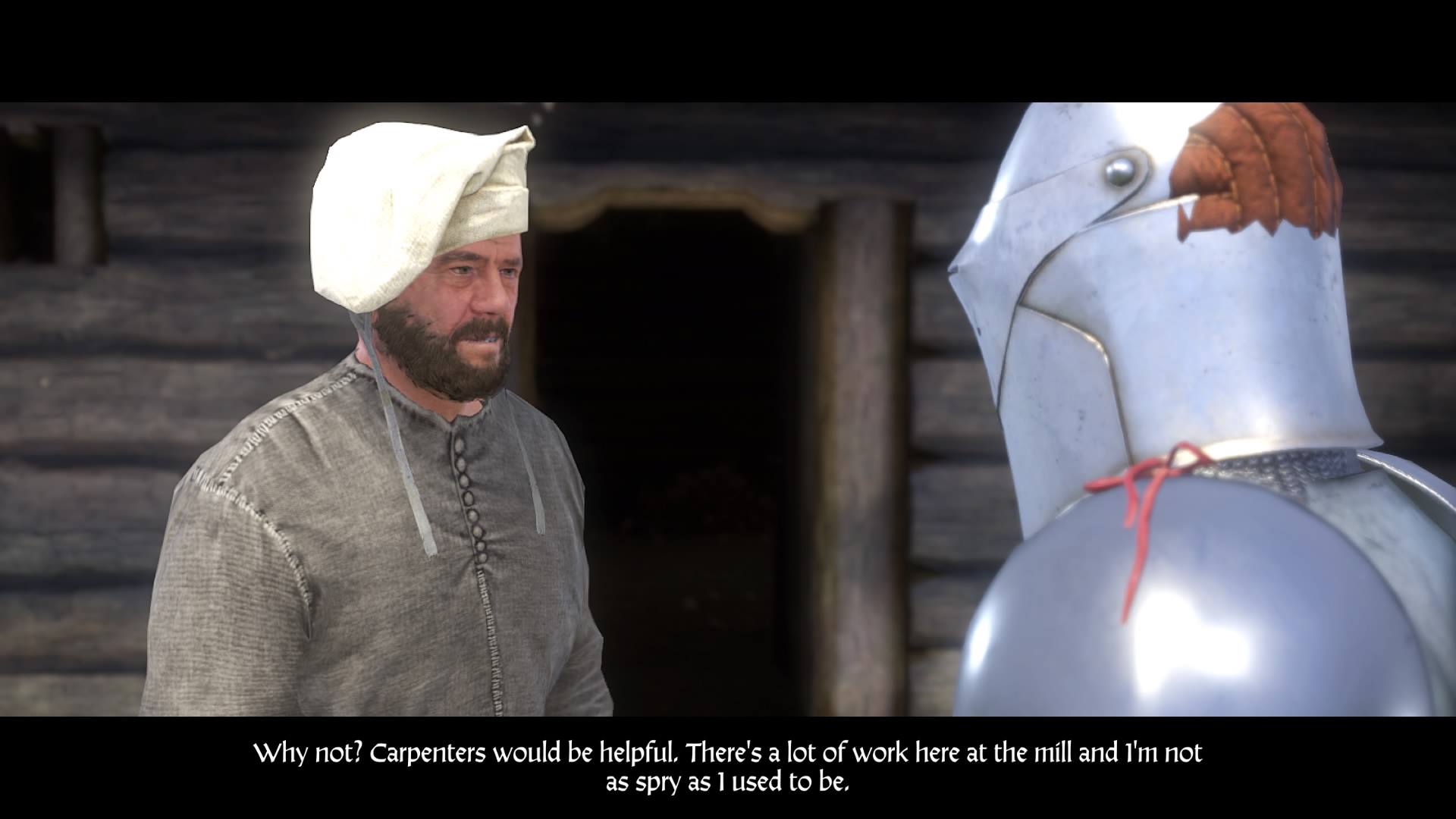
Overview
For all this though, I have not been able to put Kingdom Come: Deliverance down since I bought it, and considering I rapidly grew bored of Skyrim, and found many elements of Fallout 4 dull, I feel that for me, that sets this title apart from others of a similar nature. With a little more polish this game and any sequels that Warhorse Studios may release have the potential to become absolute masterpieces.
And for a crowd-funded game from an almost unheard of developer, that ain't half bad.




